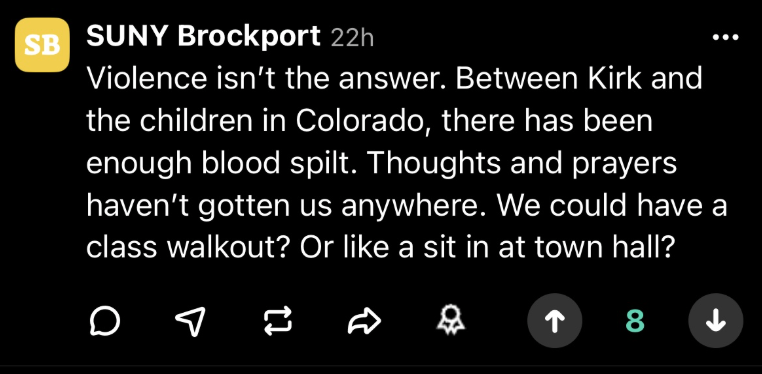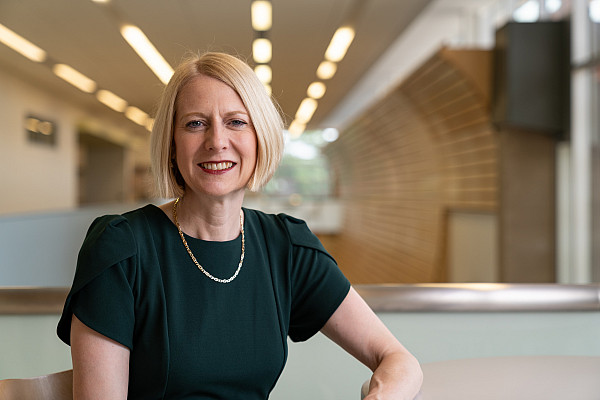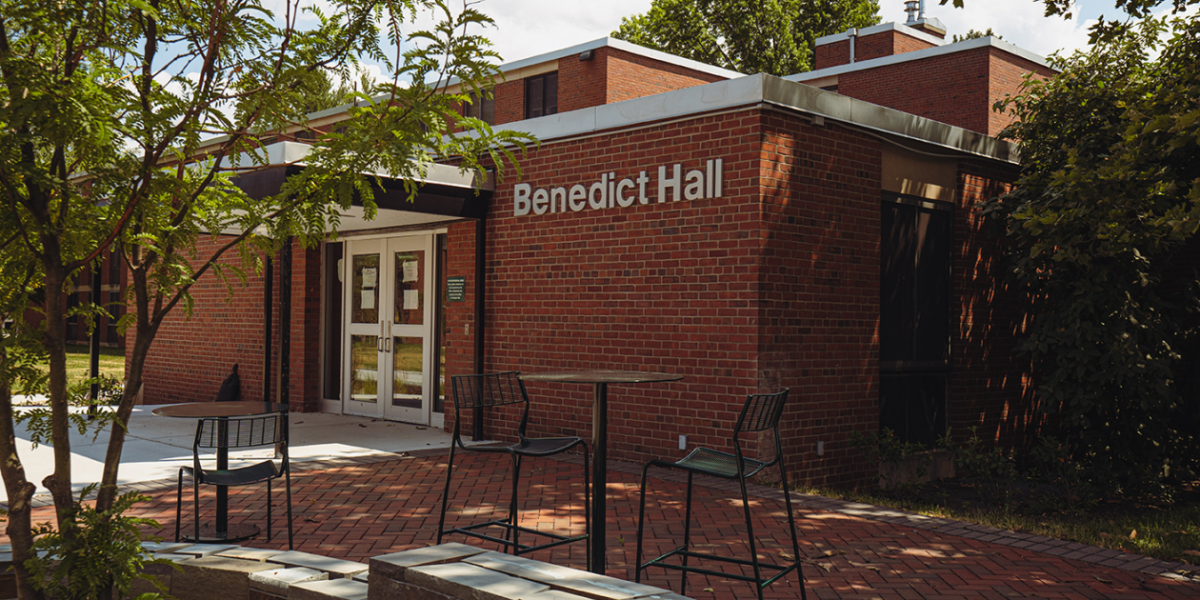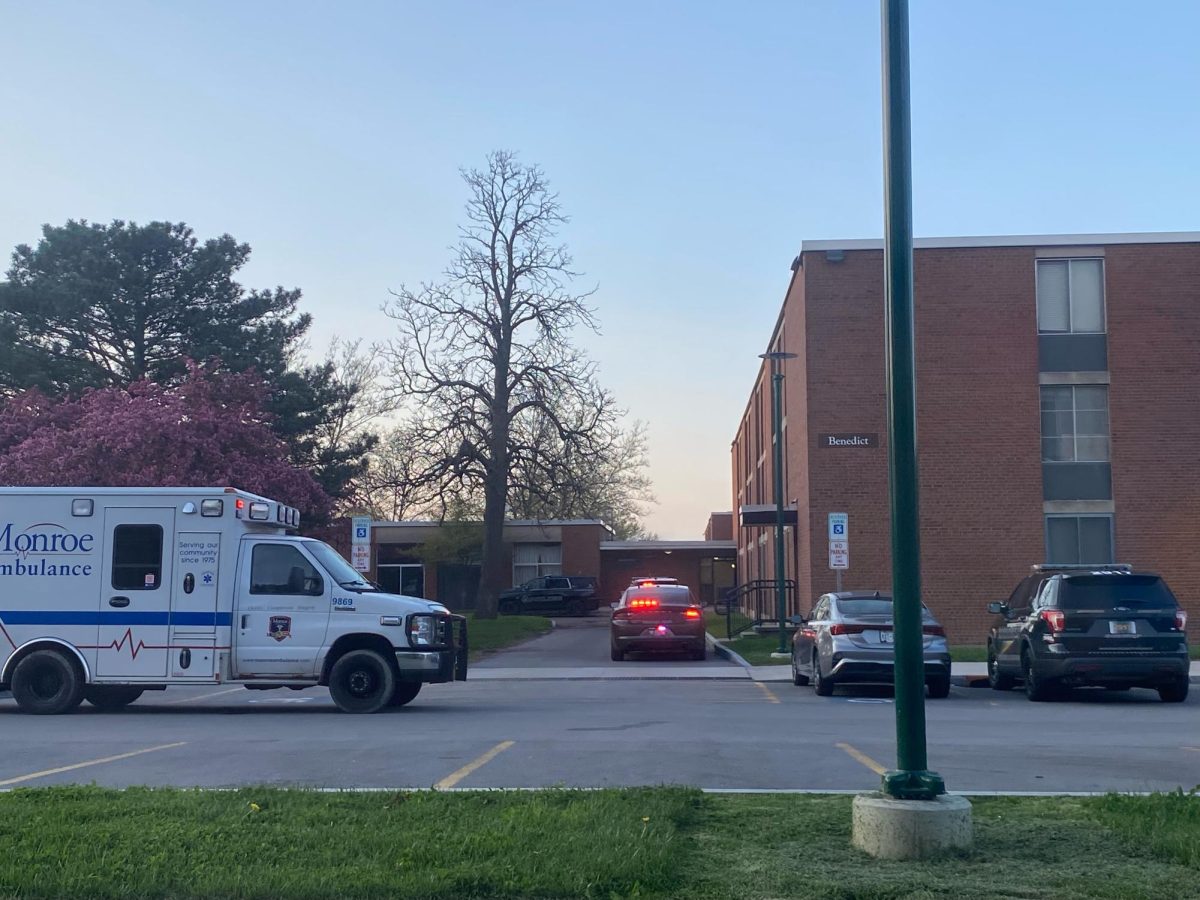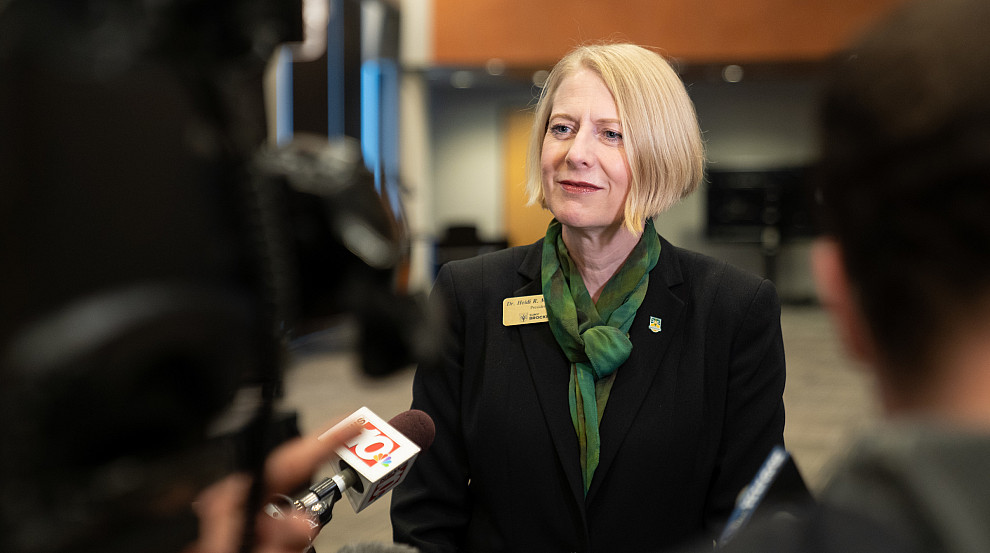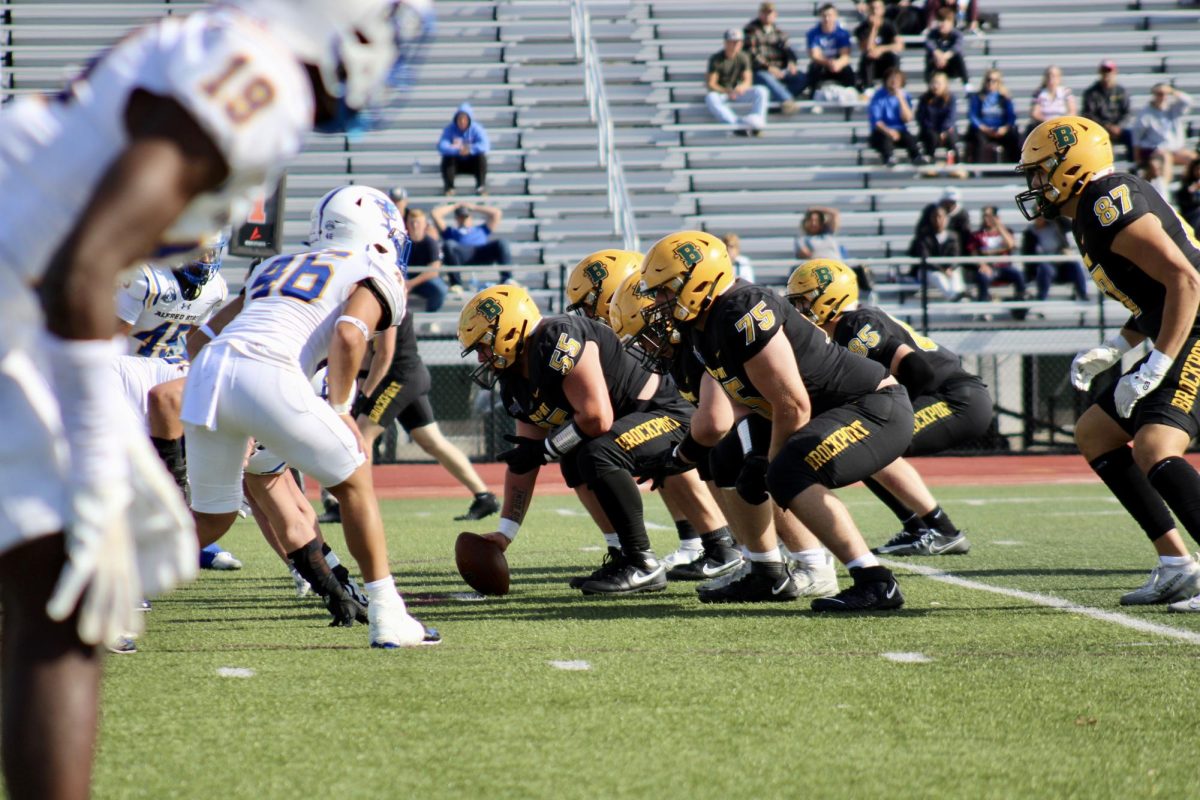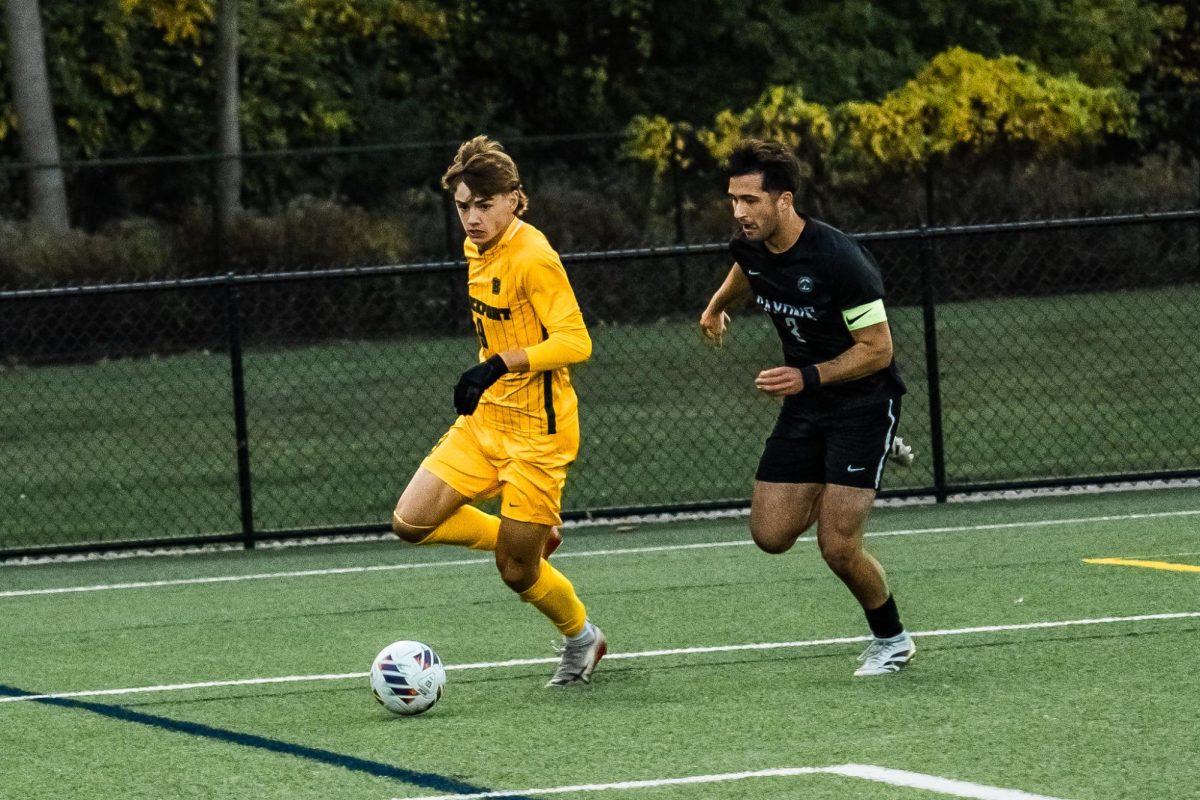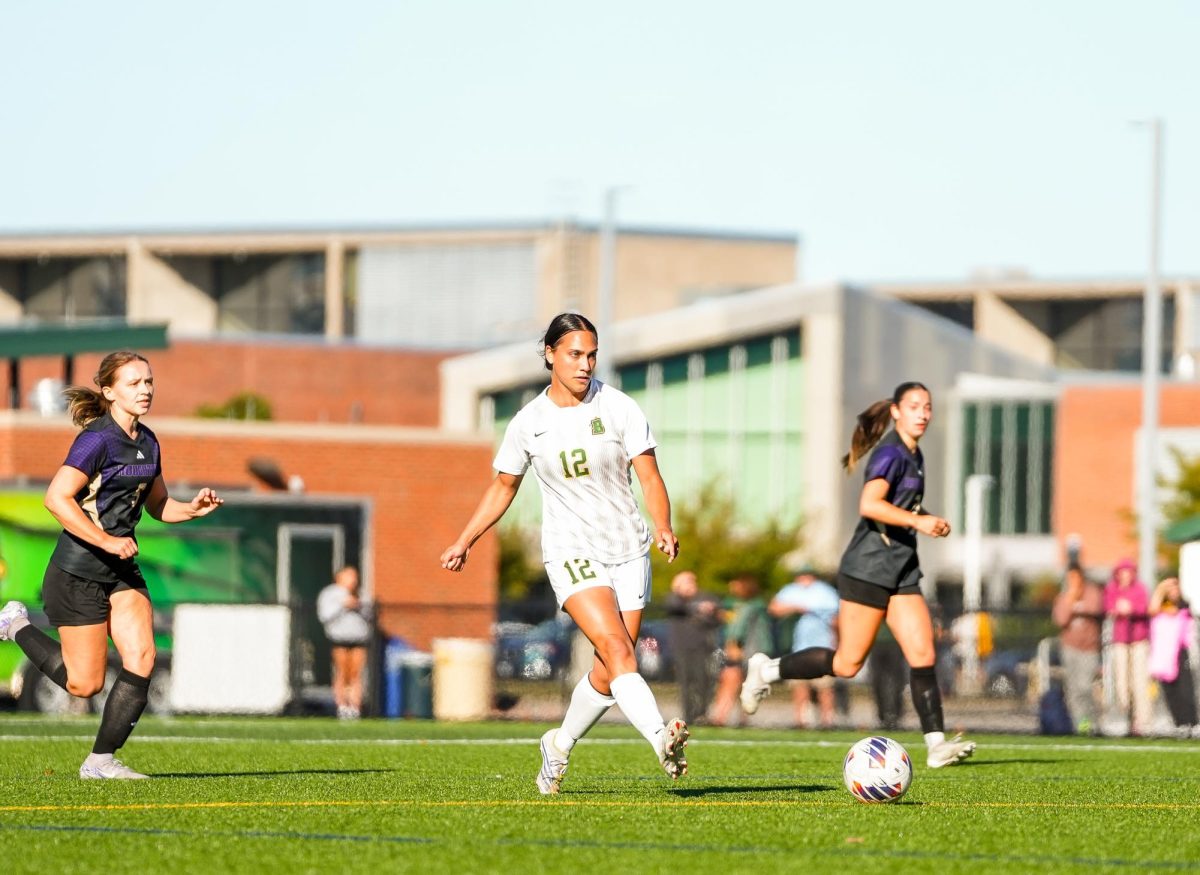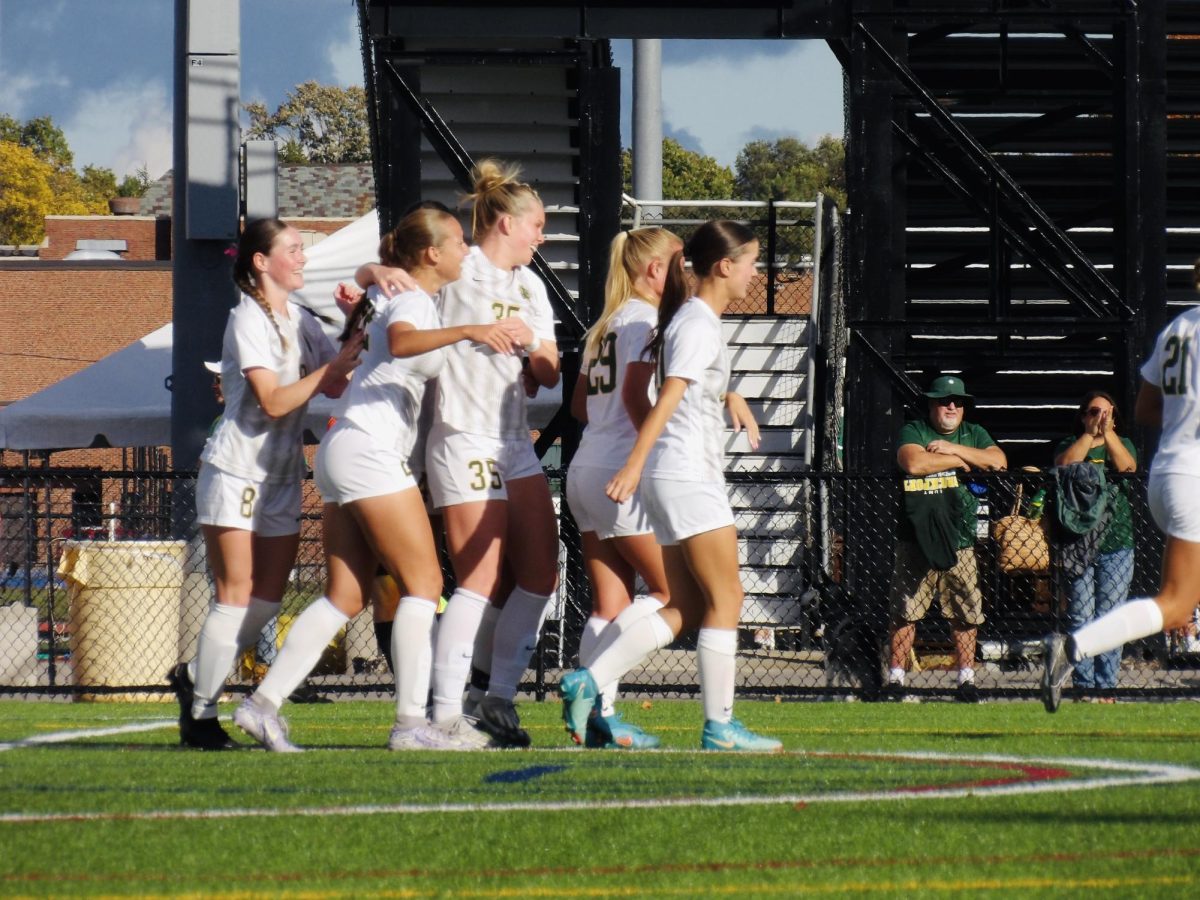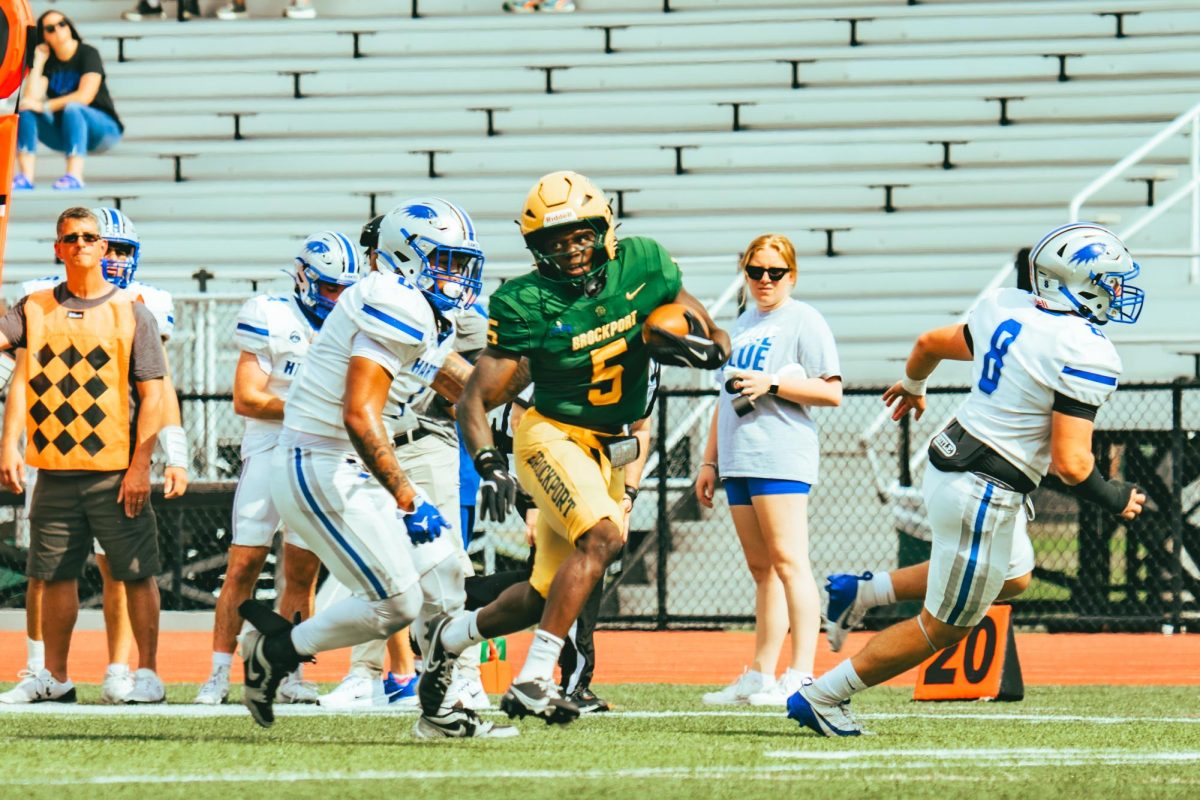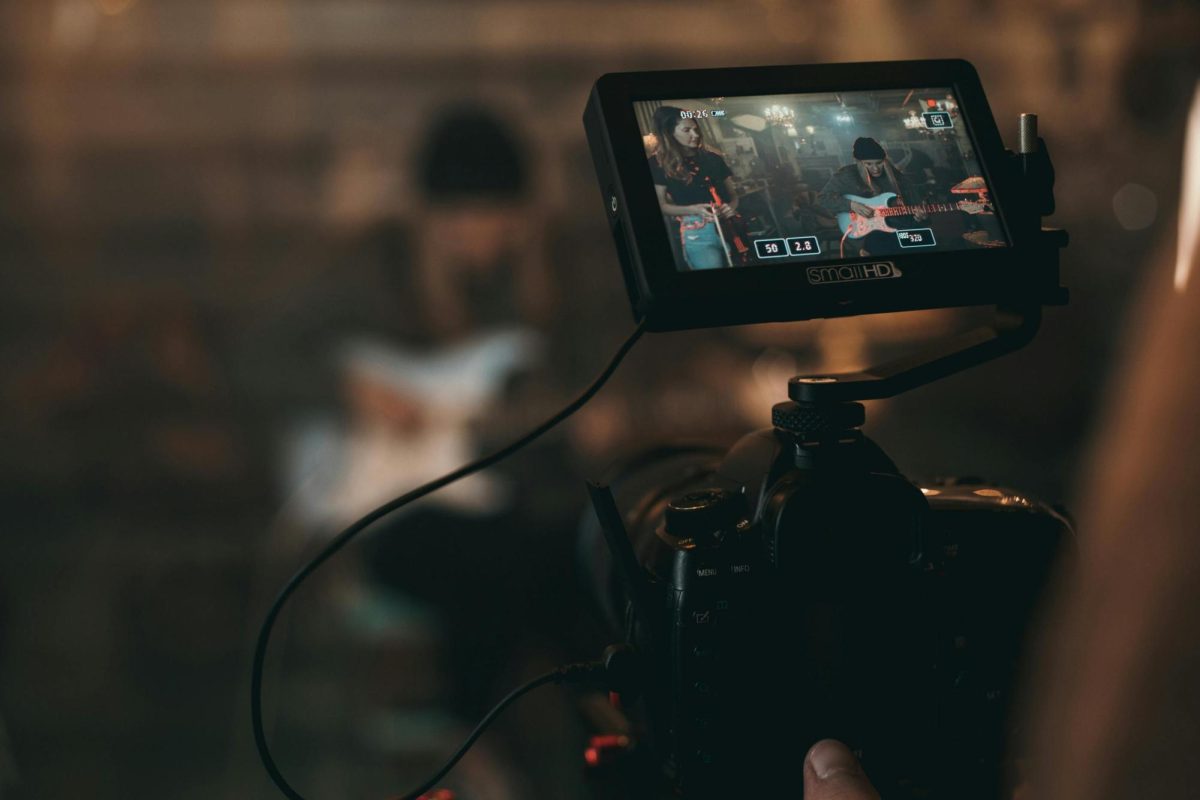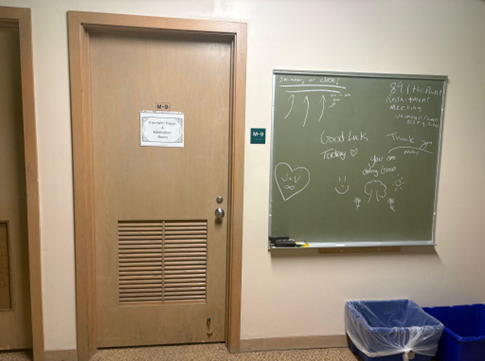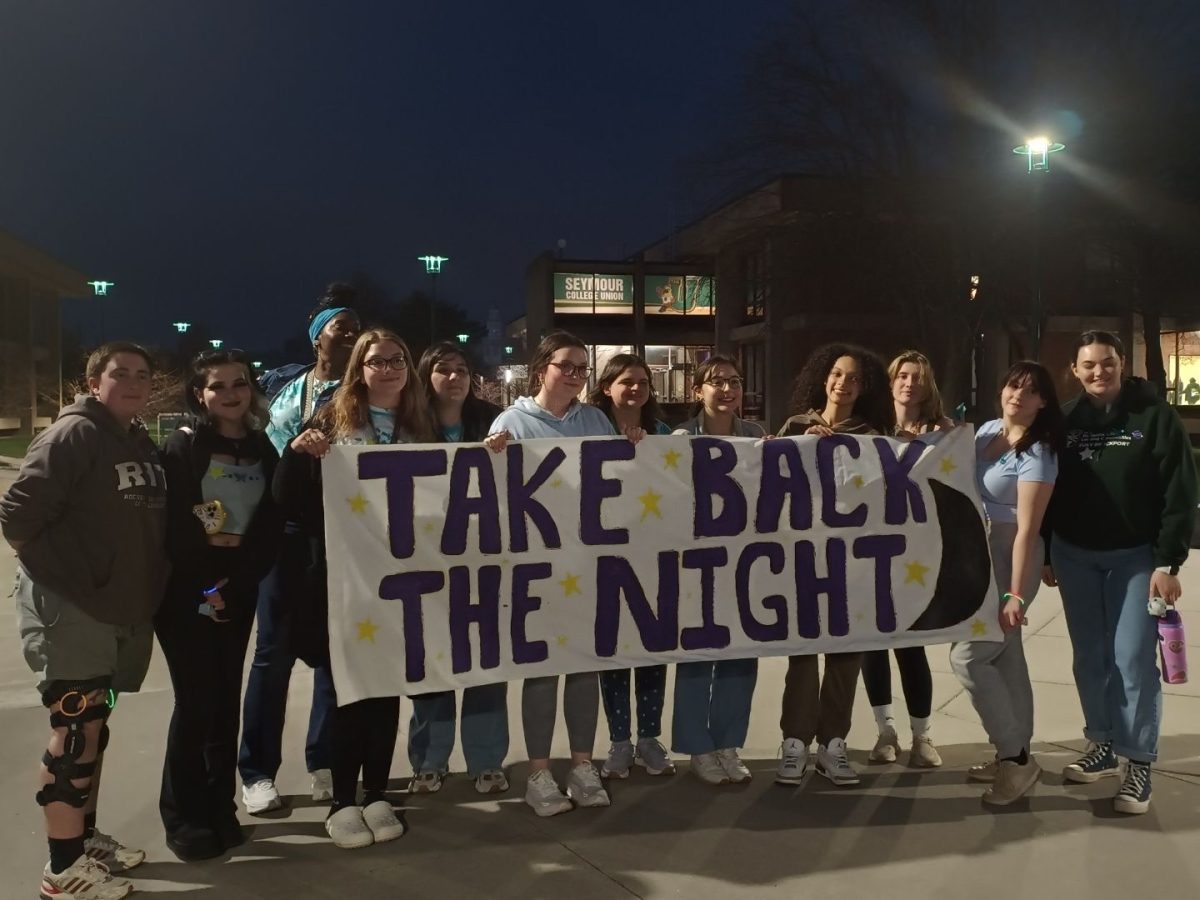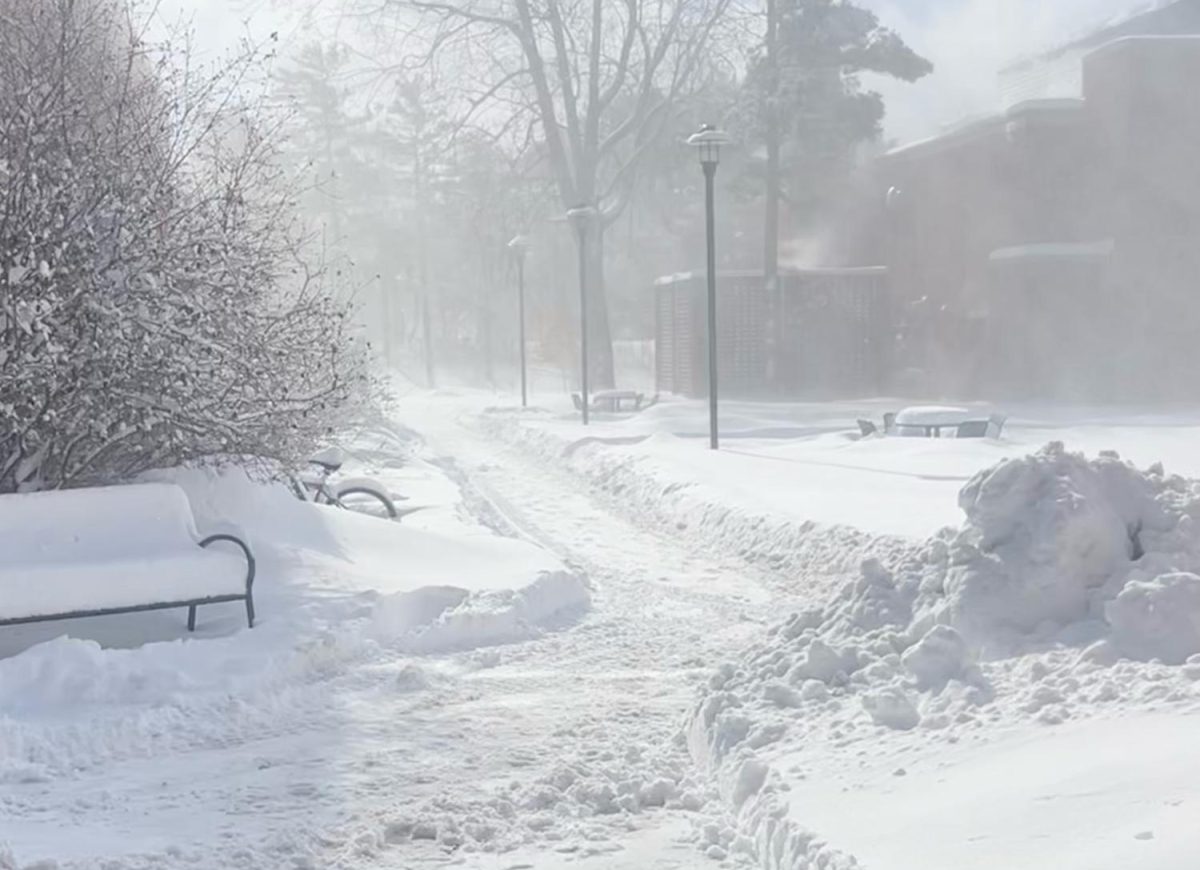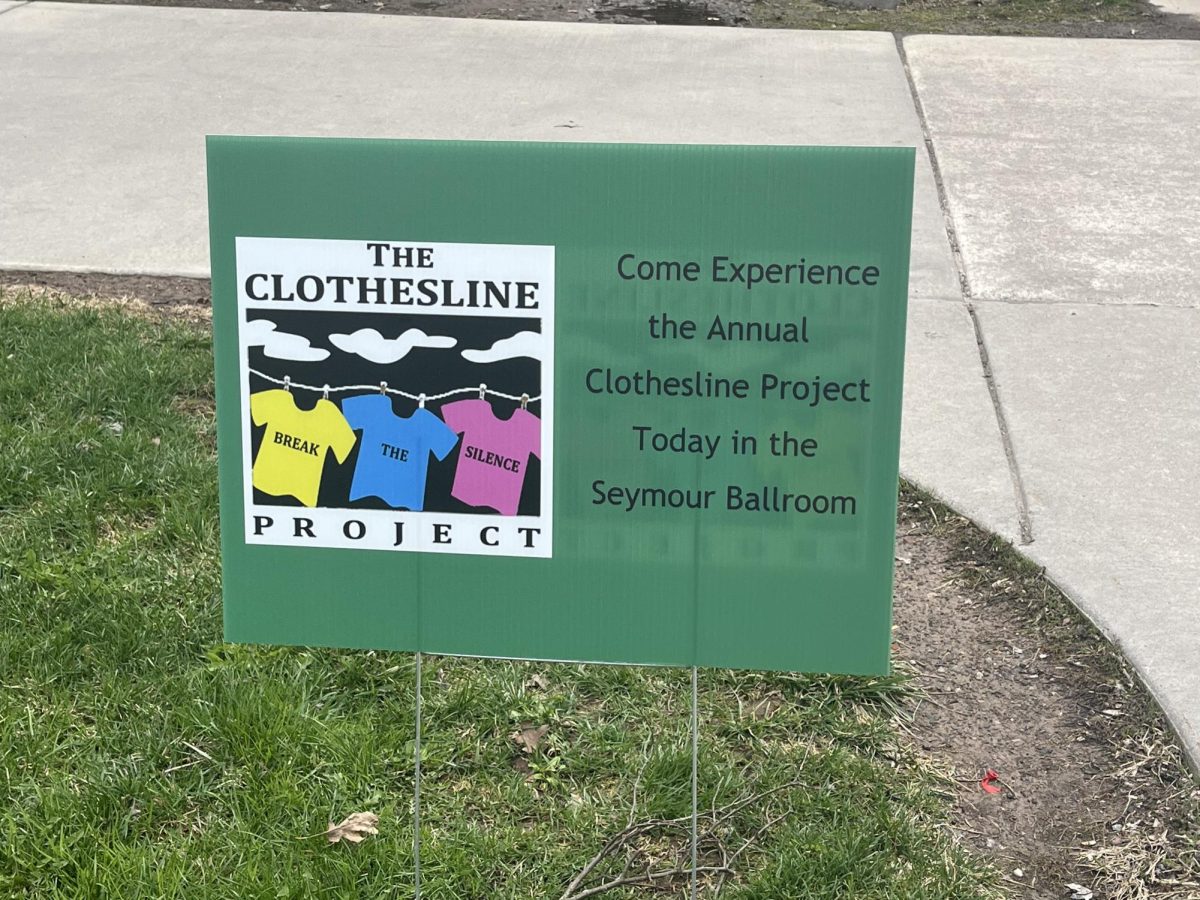Academic freedom isn’t just a principle–it’s a foundation. And at SUNY Brockport, it’s one worth protecting.
This month SUNY Brockport President Heidi Macpherson joined hundreds of university and college presidents in signing a national statement opposing political interference in higher education.
The statement, titled “A Call for Constructive Engagement” was published by the American Association of Colleges and Universities (AAC&U). It urges elected officials to respect the autonomy of colleges and universities and criticizes the recent efforts to link higher education funding to politically motivated demands, referring to such actions as “unprecedented government overreach.” The letter, which remains neutral rather than aligning with any specific political party, emphasizes the importance of constructive dialogue and the role of higher education in a democratic society.
Harvard University, which recently filed a lawsuit against the Trump Administration over a 2.2 billion dollar funding cut, is among the institutions that signed the statement.
SUNY Brockport President Heidi Macpherson said the decision to sign the statement was not taken lightly. Earlier in the academic year, she explained her decision to refrain from publicly commenting on most matters of public concern in her “Statement on Statements.”
“Statements that come from the Office of the President will be limited to matters that impact the core functions of our university,” Macpherson wrote in her Statement. “It is because as an institution, our aim is to foster civil and productive dialogue on these topics — not to advocate for a particular viewpoint or position.”
This time, the issue directly impacted those core functions.
“Recent federal actions do impact the core functions of our university, and therefore signing this statement, which reflects the concerns and views that I hold, aligns with the principles I am standing behind,” Macpherson said. “I believe the potential repercussions of not taking a stance are worse.”
For students like biology minor Justice Crane, who spent the past summer conducting research as part of SUNY Brockport’s paid Summer Undergraduate Research Program (SURP), taking a stance is of utmost importance.

“I think that signing the petition defending academic freedom and opposing social interference is necessary and important for all universities,” Crane said. “I’m happy Brockport was able to be a part of that, and I think it will be interesting to see where things go from here.”
Crane recently presented her research on antiseptics and antibiotic resistance at the SUNY Undergraduate Research Conference (SURC). She emphasized that research funding, including both for arts and sciences, has crucial significance.
“Research is so important to better understand the world we live in and to make our times here comfortable and easy,” Crane said. “While science research has a direct impact on industry and health practices, social art research is equally important. I think it is an absolute disgrace to defund something that is so integral to our society.”
Adjunct instructor Timothy Banach who teaches the film as social commentary class said he’s felt the political pressure in the classroom.
“There were moments where I wondered, am I going to get a letter or a note from somebody saying, ‘Don’t include this material in your class or you will not be invited back as an adjunct next semester’?” Banach said. “It is of concern to me and it has to be taken into account, but at the same time, we have a responsibility as educators to not bow to that pressure.”
Banach believes that taking a stance can directly contribute to the credibility of an institution.
“If colleges and universities do not publicly stand up and defend academic freedom, then the question becomes: what is the value of the education?” Banach said.
Senior art major Christian Lopez, who relies on financial aid is concerned about the potential impact of proposed cuts to federal student loan programs.
“The stability and timeliness of my financial aid were essential to my ability to continue my education,” Lopez said. “Had these disruptions occurred during my time of need, I’m uncertain whether I would be graduating this semester.”
Lopez sees federal interference in financial aid as more than just a policy concern.
“Increased financial burdens are not just administrative issues, they are direct threats to the future of students across the country,” Lopez said.
Banach echoed that fear, warning that political interference in funding decisions not only affects students, but also the production and spread of knowledge itself.
“When funding is tied to ideology, it puts everything at risk,” Banach said. “It’s really scary to think that a scientific study might not be published because it confirms or disconfirms a widely held belief by one side of a political issue. That is the beginning of the removal of all of our freedoms of speech and expression.”
As a participant in AAC&U’s presidential roundtable discussions, President Macpherson helped contribute to the formation of the statement. For her, the choice to speak out was ultimately clear.
“An institution of higher education should be a place where the issues of the day can be discussed civilly and productively,” Macpherson said. “We must work together as an academic community to foster respectful, engaged dialogue. It’s our moral and educational responsibility.”
The letter also denounced the Trump administration’s unprecedented effort to deport international students.
As political pressures continue to shape the future of academia, Macpherson’s decision to sign the AAC&U statement signals a firm commitment to protecting academic freedom, student opportunities and institutional integrity.

